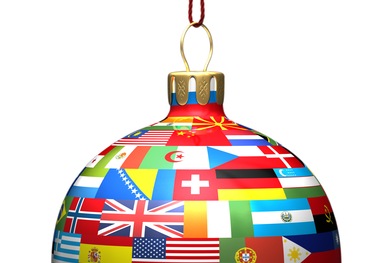Significance of Holidays

Holidays, although altered by culture, are celebrated throughout the world.
Feb 14, 2015
Towards the end of each year, the general mood in both the United States (U.S.) and the rest of the world begins to phase into the quintessentially festive joy characteristic of the holidays. As the sun sets, the multicolored radiance typical of houses adorned with hundreds of flickering LEDs is revealed under the moon, and the occasional meandering pedestrian may be seen wearing several layers to ward off the pervasive cold. The holidays are revered, in a sense, by most men, women, and children indiscriminately across the Western world, for their tangibly jovial ambience.
However, the holiday season is rapidly evolving, catalyzed by consumerism, globalization, and communism. In 2012, the average American family spent $854 on presents, a 32% increase from the year before. This increase is, presumably, tightly linked with the recovery of the U.S. economy from the financial panic of 2008; with the market flowing more freely, consumers are willing to spend more money on festive superficialities than they were.
In addition, holidays like Christmas, which before was confined to be celebrated only in countries with an elevated presence of Christianity, have, by virtue of globalization, become increasingly secular and appealing to all populations, rather than merely Christians. In a sense, Christmas has become a season directed more towards giving one another gifts and demonstrating hospitality than celebrating the birth of Christ.
Communism is also a major driving force in this global holiday revolution. Truthfully, four out of the five remaining communist countries on Earth have become increasingly impertinent in the global economy; it is not Vietnam, or Laos, that has remained relevant, but the People’s Republic of China. The Chinese Communist Party (CCP), instead of conforming to the strictly Maoistic regimentation of the national economy, elected, under Deng Xiaoping, to work towards détente with the U.S. With this step towards the future, the CCP has earned for their country the permanence of collectivism and gubernatorial dominance; they’ve also managed to propel China to the forefront of international economics, and commandeer China’s 1.3 billion-strong population to produce trillions of Western goods. With the consumerization of the holidays, China’s manufacturing of the Western economy through the application of unorthodox communism has led them to possess the biggest economy on the planet.























